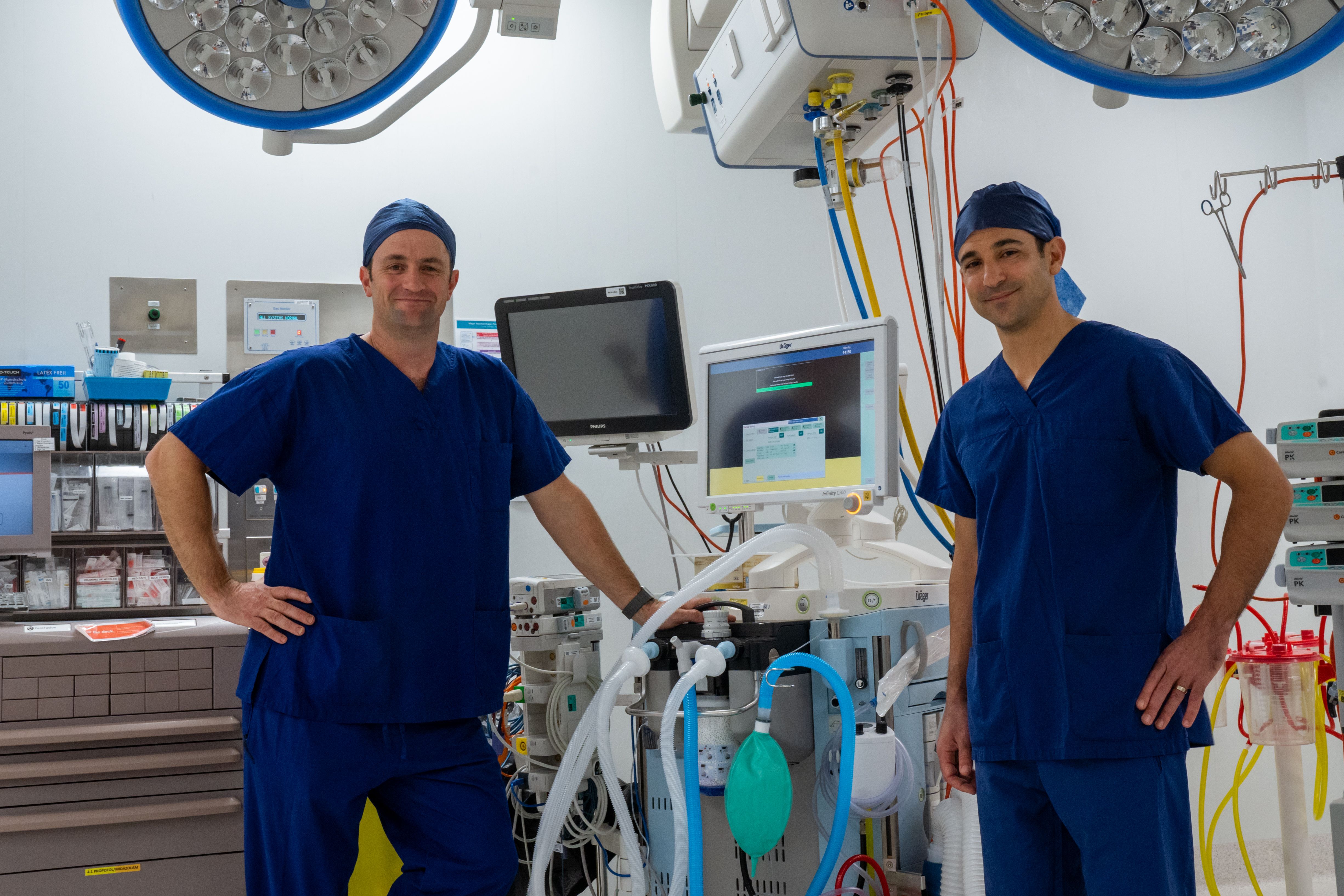
Dr Hamish Mace (l) and Kevin Trentino
Pre-operative screening and treating elective surgery patients for anaemia and suboptimal iron stores is cost effective and substantially reduces blood transfusion requirements, a WA study shows.
The introduction of an anaemia screening clinic in 2016 for patients undergoing colorectal surgery at the a Fiona Stanley Hospital in Perth led to reduced costs of hospital admission and net savings of $3776 per patient, according researchers at the University of Western Australia.
In a before-and-after comparison, they compared procedures and costs for 239 patients who were not screened and 441 who underwent routine screening for anaemia prior to surgery.
After the clinic opened, 180 (40.8%) patients who were screened received intravenous iron for anaemia and suboptimal iron stores and 16 (3.6%) received oral iron.
Average haemoglobin levels were similar for both screened and unscreened patients (132.5 vs. 134.3 g/l). Anaemic patients receiving IV iron treatment showed a mean haemoglobin increase of 8.5 g/l from pre-treatment levels of 114.3 to 122.8 g/l post-treatment.
The average cost of screening and treating pre‐operative anaemia was $332 per screened patient. But average hospital costs were $24,204 for screened patients compared with $27,510 for those not screened.
The main outcome of the study was that screened patients were transfused 52% less red cell units when compared with those not screened (rate ratio = 0.48).
Overall, the mean difference in total screening, treatment and hospitalisation costs was AU$3776 lower for the screened vs the unscreened patient group.
The study investigators said screening was justified because about 30% of the population has anaemia or iron deficiency, increasing the need for blood transfusions for those patients after surgery, which can lead to complications and longer recovery time.
However since most hospitals do not pay for blood components, “this has led to the misconception that blood transfusions are free, and that in comparison, screening for and treating anaemia and iron deficiency is more costly,” said lead investigator Kevin Trentino, Adjunct Research Fellow at the School of Population and Global Health,
“We found contrary to common belief, the benefits of pre-screening far outweighed the costs,” he said.
“If you think how much hospitalisation costs can be reduced for one patient alone, it’s clear that if extrapolated to the 750,000 elective surgical admissions nationwide the cost savings would be considerable.”
Fiona Stanley Hospital Consultant Anaesthetist Dr Hamish Mace said while some blood loss in surgery was inevitable, minimising the resultant transfusion and the associated risks was important for clinicians.
“By increasing the patient’s haemoglobin before the operation, our patients were given a major boost going in to surgery,” Dr Mace said.
“Pre-operative treatment with iron also led to an increase in patients’ red cells after the operation, giving them a buffer to avoid transfusion.
“Patients screened and treated by the Fiona Stanley clinic received half the amount of red blood cell transfusions and, as a result, received much better care.”
The study findings are published in Anaesthesia journal.